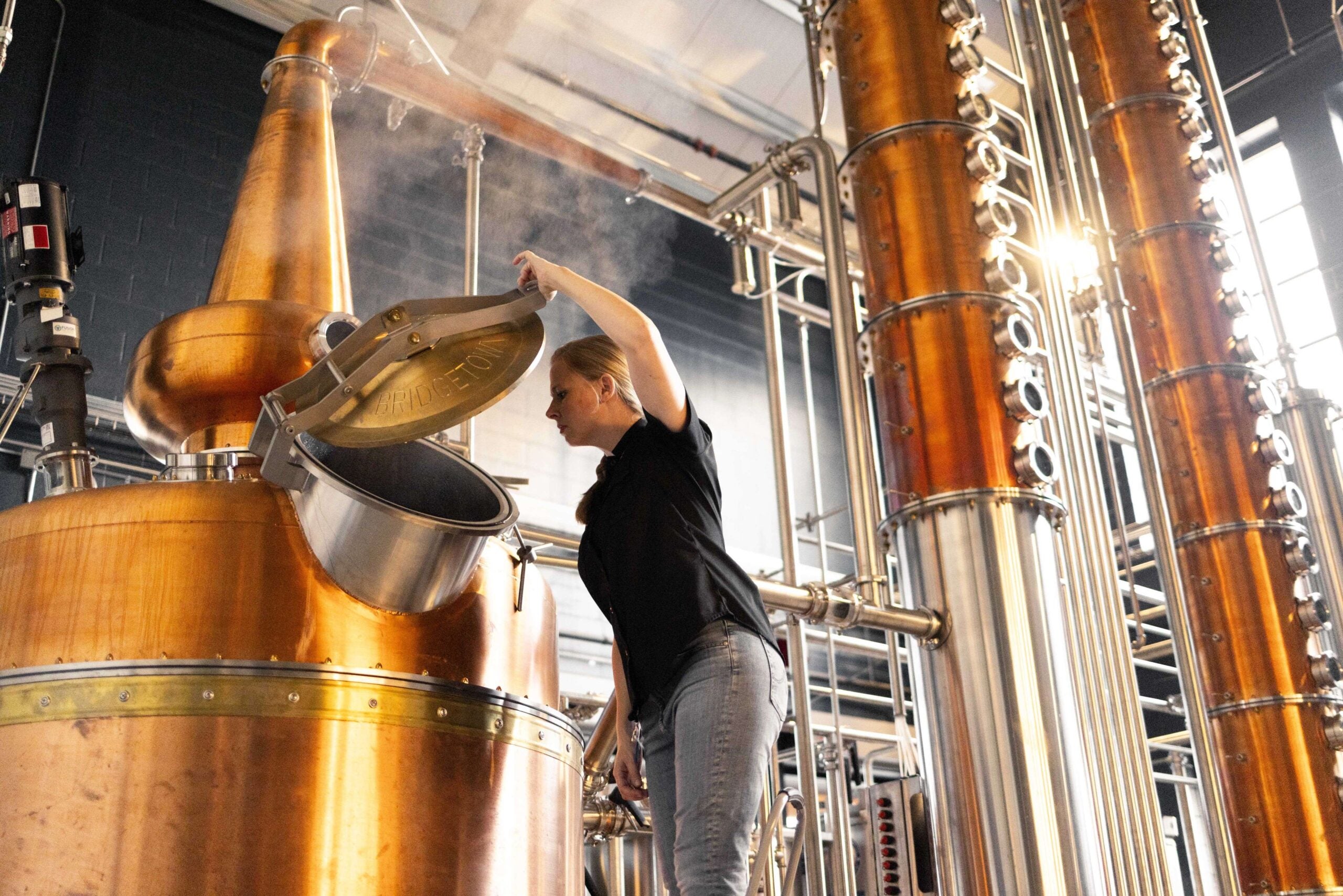There is perhaps no spirit more distinctly American than bourbon. Rob Ferrett discovers how the history of the drink coincide with American history itself. Then he digs into the science of leaning and tracks program cuts at UW-Superior.
Featured in this Show
-
Journey Of Bourbon: From Colonial Libation To Modern Spirit
While the name bourbon may sound French, the corn-based, barrel-aged spirit is as American as apple pie.
Here’s a brief history of the popular spirit. English settlers in colonial America consumed alcohol as an alternative to water.
“In those very early colonial days, the first English settlers, they really did not like to drink water, and with good reason in hindsight,” said Dane Huckelbridge, the author of “Bourbon: A History of the American Spirit”. “They thought it was poisonous. That’s because so often, people would drink from polluted water sources and get sick from it.”
Because the settlers were far from home, alcohol shipments took a long time to reach them. That prompted them to begin making alcohol with local ingredients, like corn — leading to the creation of bourbon whiskey.
By the end of the Civil War, the spirit had become so popular that people had started making fake bourbon by adding dyes and flavors to grain alcohol to imitate the higher-quality product. And the corruption of the fake-bourbon distillers didn’t stop there — it extended into the realm of political corruption.
“Some of these distillers and politicians were in cahoots,” Huckelbridge said. “They weren’t paying the taxes they should have been on this low-quality bourbon, and they weren’t reporting it, and they were bribing the government officials.”
In the 1890s, traditional bourbon distilleries in Kentucky, who aged their more authentic products, went to war against the other distilleries outside the state that were distributing fake whiskey products that were giving a bad name to their whiskey. This eventually culminated in the Bottle and Bond Act in 1897, and the Pure Food and Drug Act a few years later. These created a clear, legal definition of what bourbon is, dealing a blow to producers of fake bourbons.
In 1920, Prohibition went into effect — an era that proved disastrous for the whiskey industry. Many distilleries went out of business, although some continued production after getting a special permit.
“The only way that distilleries could stay in business was if they got a medicinal permit, because you could still get whiskey with a doctor’s prescription,” Huckelbridge said. “Only a handful of Kentucky distillers ever were able to get those permits.”
Even after Prohibition was lifted in the 1930s, bourbon whiskey producers struggled. Distillers hadn’t been making whiskey for over a decade and had no aged whiskey to sell, meaning the bourbon on the market was low-quality. Then, the industry had to stop making bourbon again during World War II to help the war effort.
More recently, the trend in the bourbon distilling industry has been towards corporatization: “Bourbon, just like America, has become a big, corporate, global enterprise,” Huckelbridge said.
So, while part of the marketing of whiskey is portraying its American heritage, it’s a myth that bourbon is an old-timey, racehorse drink. Huckelbridge says that it’s now a modern big business.
-
UW-Superior To Cut 15 Programs, Almost Half Of Graduate Studies
UW-Superior has suspended almost half of its 15 graduate programs because of budget problems. The smallest four year campus in the UW System has an annual structural deficit of two and a half million dollars.
-
Bourbon: The History Of The American Spirit
There is perhaps no spirit more classically American than bourbon. Author Dane Huckelbridge illustrates how the country and the spirit have an intertwined history.
-
How To Learn Things (And Not Forget Them Tomorrow)
Underlining, cramming, repetitive practice–those are some of the common ways we try to learn things. The bad news is, they don’t work. Learning experts share tips how to learn things–and not forget them right away.
Episode Credits
- Rob Ferrett Host
- Veronica Rueckert Host
- Galen Druke Producer
- Dane Huckelbridge Guest
- Mike Simonson Guest
- Peter Brown Guest
- Mark McDaniel Guest
Wisconsin Public Radio, © Copyright 2025, Board of Regents of the University of Wisconsin System and Wisconsin Educational Communications Board.

